Biometrics
Filter resources
-
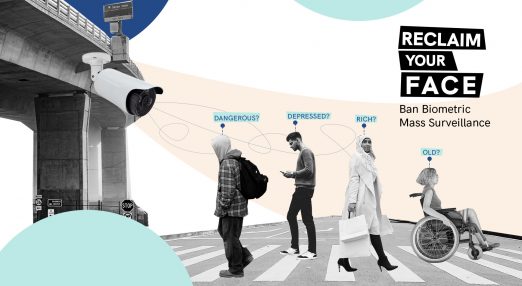
Mass facial recognition is the apparatus of police states and must be regulated
Scientists have shown the inherent structural discrimination embedded in biometric systems. Facial analysis algorithms consistently judge black faces to be angrier and more threatening than white faces. We also know that biometric systems are designed with a purportedly “neutral” face and body in mind, which can exclude people with disabilities and anybody that does not conform to an arbitrary norm.
Read more
-
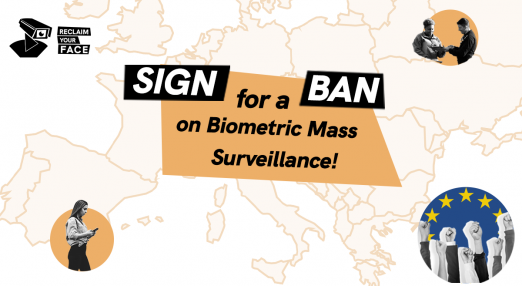
New ECI calls Europeans to stand together for a future free from harmful biometric mass surveillance
The Reclaim Your Face coalition launches a European Citizens’ Initiative (ECI) today to ban biometric mass surveillance. The ECI represents the voice of those who oppose a dystopian future and instead want a future in which choices are made by us, not by algorithms. The initiative needs to collect 1 million signatures in at least 7 EU countries during the next year.
Read more
-
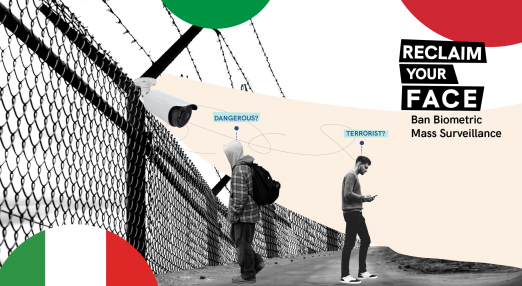
Chilling use of face recognition at Italian borders shows why we must ban biometric mass surveillance
As part of Reclaim Your Face's investigation in rights-violating deployments of biometric mass surveillance, EDRi member Hermes Center explains how the Italian Police are deploying dehumanising biometric systems against people at Italy’s border.
Read more
-

How to Reclaim Your Face From Clearview AI
The Hamburg Data Protection Authority deemed Clearview AI’s biometric photo database illegal in the EU as a result of a complaint Matthias Marx, a member of the Chaos Computer Club (an EDRi member) filed.
Read more
-
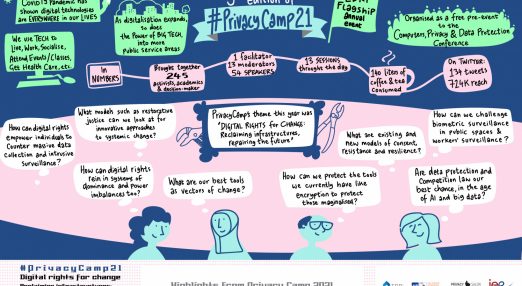
#PrivacyCamp21: Event Summary
The theme of the 9th edition of Privacy Camp was "Digital rights for change: Reclaiming infrastructures, repairing the future" and included thirteen sessions on a variety of topics. The event was attended by 250 people. If you missed the event or want a reminder of what happened in the session, find the session summaries below.
Read more
-

2021: Important consultations for your Digital Rights!
Public consultations are an opportunity to influence future legislation at an early stage, in the European Union and beyond. They are your opportunity to help shaping a brighter future for digital rights, such as your right to a private life, data protection, or your freedom of opinion and expression.
Read more
-
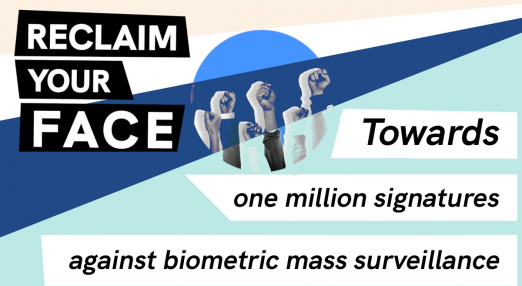
ReclaimYourFace activates the public and civil society to ban biometric mass surveillance
The EDRi network and partners launched the first phase of the Reclaim Your Face campaign, which focuses on raising awareness and investigating and challenging abusive uses of facial recognition and other biometric tech at a local and national level, in November 2020. The coalition has achieved several wins in the two months since. However much remains to be done in the movement to reclaim our faces and ban biometric mass surveillance in Europe!
Read more
-
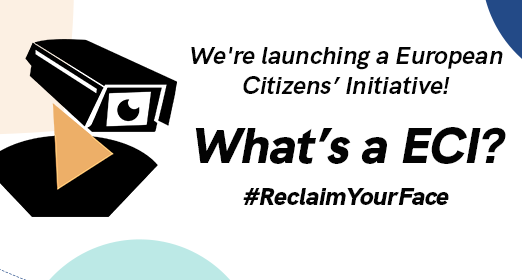
Looking for a New Years’ Resolution? #ReclaimYourFace with our citizens’ initiative!
Since its launch just 2 months ago, the Reclaim Your Face campaign to ban biometric mass surveillance has gone from strength to strength. Already 23 organisations have joined the coalition, and almost 13,000 people have joined the movement – and this is only the beginning.
Read more
-
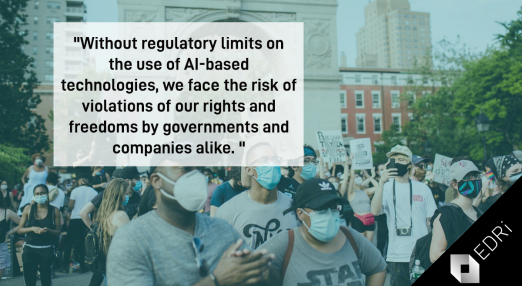
Civil society calls for AI red lines in the European Union’s Artificial Intelligence proposal
European Digital Rights together with 61 civil society organisations have sent an open letter to the European Commission demanding red lines for the applications of AI that threaten fundamental rights.
Read more
-

Press release: EDRi network launches public initiative against biometric mass surveillance
On 7 January, the European Commission registered a new European Citizens’ Initiative (ECI), the ‘Civil society initiative for a ban on biometric mass surveillance practices’.
Read more
-

Statement: civil society challenges EU plans to expand biometric mass surveillance
On 9 December, the European Commission presented its new Security Union package, composed of the Counter-Terrorism Agenda and a proposal to strengthen the mandate of Europol. Originally intended for next year, the release of the Counter-Terrorism was accelerated due to recent attacks in France and Austria. When it comes to protecting fundamental rights from intrusive biometric surveillance, the proposals fall seriously short.
Read more
-

The slippery slope of COVID health passports
There is increasing talk of measures that allow or restrict passengers at the departure gate based on health data. Can you show proof of vaccination? Then you may pass. Do you have a recent, negative test result? Then you may enter. Are you unable or unwilling to show these? Then you are denied access. There’s an understandable rationale that underpins these scenarios: we want to create a safe environment. Yet it is also cause for great concern.
Read more
